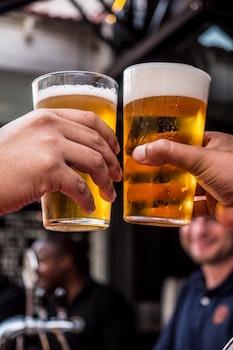
The Cool Spring Downtown District, Senator Kirk deViere, Mayor Mitch Colvin, Councilmember Shakeyla Ingram, other elected officials, and several downtown business owners were invited to hear a presentation from the North Carolina Downtown Development Association about the bill and [possible implementation in Fayetteville.
House Bill 890 allows cities to create open-container districts for alcohol. For this to happen, the governing body of a local governmental unit may make a designated social district that contains a common area where people can drink alcoholic beverages; the alcoholic beverage must be purchased from an ABC licensed business from within the social district. People cannot bring their drinks to the district, and they cannot carry drinks outside the district.
To establish a social district, seven things are required: signage must be installed at the boundaries of the district, all drinks must be in clearly labeled non-glass containers that are under 16 oz, the local government must pass a local ordinance that establishes the boundaries of the district along with days/hours that are approved for open-container alcohol, and that map and district plan must be submitted to the North Carolina Alcoholic Beverage Control Commission.
When looking at Fayetteville, the most prominent problem presenters were concerned with was establishing the district and its boundaries.
"I think one of Fayetteville's biggest challenges is going to be where you put the signs and where you put the boundaries just because you do have such a wide streetscape. I think figuring out where you want to put those signs is probably going to be important," said Jason Epleym, president, Benchmark Planning.
A Social District's potential problems could include littering, public intoxication, and illegal filling of containers from 'personal bottles.' However, the biggest problem Ray Gibbs, executive director, Forward High Point, has seen from these social districts has been a lack of participation.
"It's not something that's going to be right for every city. It's not a magic solution. And as we always say in downtown development, there is no magic solution," Gibbs said. "But, you know, if you put one in effect and only one or two of your bars, restaurants, or pubs participate, is there really enough to do it and makes sense?"
Bianca Shoneman, president and CEO, Cool Spring Downtown District, said that the next step is to send out a survey to get feedback to see if establishing a social district is something Fayetteville residents and business owners want in their downtown area.
"As a collective, we want to make sure that property owners, elected officials, residents and of course, our community at large are all behind this effort because downtown is the heart of the city, and we should have a concerted effort to move us forward and generally have consensus from the community before coming out ahead," Shoneman said. "We are looking to do this likely sometime – if we do feel like it's ready to move forward – by ordinance sometime in late summer, early fall."